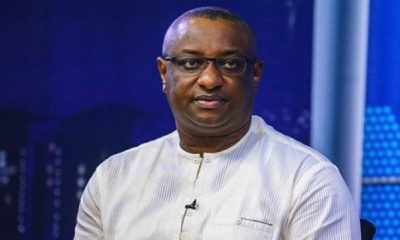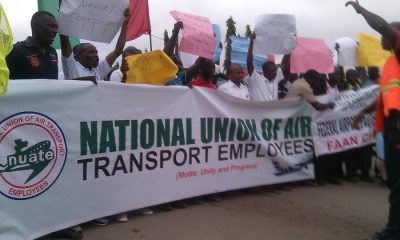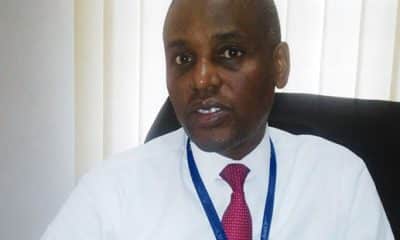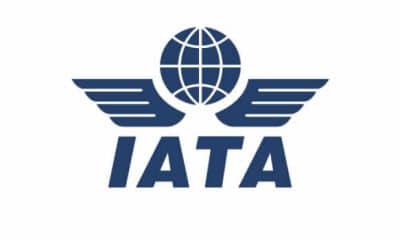Business
Industry Players Blame Fuel Hike, Forex Scarcity On High Airfares
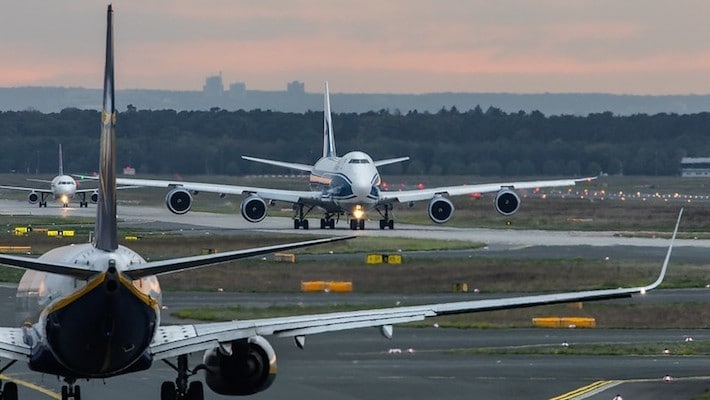
Some industry players in the aviation sector have blamed the continuous hike in airfare on the scarcity of forex, and the high cost of aviation fuel, also known as JET A1.
Naija News reports that some of these experts have expressed optimism that airfares can be moderate once some of these challenges are addressed.
It was gathered that while most operators have complained that they get forex (dollar) at the black market rate of about $/N749 instead of the $/463.50 obtainable at the Central Bank of Nigeria (CBN), the aviation fuel they said now sells for between N790 and N800 per litre.
According to airline operators, CRJ and Embraer flights cost between N970,000 and N1.04 million because these factors have contributed immensely to high airfares as airlines’ operators are forced to raise their airfares accordingly.
The Chief Executive Officer of aviation consultancy firm, Belujane Konzult, Chris Aligbe, however, told The Punch that a low-cost air ticket was workable in Nigeria in the midst of all these challenges.
He argued that low airfares are not sustainable in the country while noting that the rising cost of aviation fuel and the shortage of foreign exchange in the country have been attributed to the incessant surge in airfares.
Aligbe submitted that “Our airlines cannot offer low fares. They are not low-fare carriers; their business plans do not fit into low fares situations. Low-fare carriers are for different business strategies and plans. It includes even the type of aeroplanes used and a lot of other things. The business plans of existing carriers are not geared toward low fares. They cannot be low-fare carriers.
“It will not be for them. Their initial business plan was not for low fares. With their present setup and equipment, they cannot run low fares. It is not sustainable. Business plans for low-fare carriers are developed from scratch.
“Once you are entering into an airline business and you determine what kind of business you want to run, your plan starts from that point. The aircraft is different, the scheduling and target market must be taken into account in the business plan.
“Low-fare carriers do not have room for hand luggage. “If you carry anything else, you must pay for it and Nigerians are not used to this. The Nigerian market is not ready for this.
“People do not know what a low-fare carrier is. You must be able to continue what you started and people should know, from day one. The scheduling and type of airplane you buy must be keyed into your business plan,”
Meanwhile the Managing Director of Aero Contractors, Capt. Ado Sanusi claimed that low airfares were possible.
Sanusi pointed out that “I agree that low fares can be sustainable if the local airlines look at their cost structure and work around it to make sure that they reduce their operating costs. The most significant thing is that if the price of fuel is reduced, you should also see an equal reduction in air ticket prices.
“Recently, there was a slight decrease in the price of c, so I assume with that slight decrease, there will be a decrease in the ticket price.
“Fares depend on the airline’s cost structure. If you can afford low fares, you must look at what is best for you as an airline to make a profit. This is after looking at your cost structure.”
However, the Chief Operating Officer (COO) of United Nigeria Airlines, Osita Okonkwo, that forex scarcity and the high cost of aircraft maintenance were some of the issues the operators were facing, adding that it would be out of place for government to assist airlines to keep being in business.
Okonkwo said “There is a need for the government’s intervention in the air transport sector in Nigeria. The United States and the United Kingdom have done that, especially when big issues arise. That is not asking for too much. They have intervened in some companies and given forex to some companies. It would be a good idea to extend that to airlines as well.
“Every aircraft component has diminishing value. When we started in 2021, fuel was N200, suddenly it jumped to N300 per litre and is now about N800 per litre. To get foreign exchange, you have to queue. While you are in a queue, you have aircraft on the ground that are waiting to be ferried overseas for heavy maintenance.
“If you look at the cost structure of every operation, first of all, you have the aircraft come, which is in most cases measured in hourly bases or circle bases for engine, mainframe, and any other things you have in the aircraft. You have to know that every component has a diminishing value. You have an engine with 20,000, 30,000 circles or whatever.
“It reaches a certain point, you have to go for some checks. Aircraft costs are one big chunk of it, which you have to manage. The second component is operating costs, which are basically fuel. Consumables and spare parts handling charges are all related to particular operations.”
He advanced that almost 99% of input into an aircraft was forex dominated since the country did not produce aeroplane parts.
He stated that “So you need forex. We suffered double jeopardy – access to foreign exchange and availability and cost. A dollar rose from about N400 plus to N900 at a time, if you are not lucky enough to get it from the Central Bank of Nigeria.
“Currently, CBN meets about 20 per cent to 30 per cent of needs and that takes time. You have to queue. Meanwhile, you have an AOG that you have to get spare parts. It has been really difficult. What we have seen are escalating operating costs. It is escalating rapidly. There was a reaction from N23,000-N30,000 to N50,000-N70,000. Now, what we are seeing is that because of the economic situation in the country, nobody is flying at N70,000.
“You can see that even if you get tickets of N40,000, I can assure you that people underwrite those costs.
“There is nobody who can fly at N40,000. Even if the aircraft is fully loaded, it is not possible. We operate CRJ aircraft and sell tickets for N40,000. NCAA takes five per cent and MMA2 takes ₦4,250, which is already 10 per cent of the fare we have collected.
“Fuel is discussed. One-hour flights require 1300 litres of fuel. So, there is no way anybody who flies at N40,000 will not do anything.
“We have learned in the last two years that it does not make sense to compete on fares. There is no heroism in flying an aircraft. The only heroism is sustaining airline operations. Instead of competing on fares, airlines should focus on what they do.
“Make sure you get customers to a level that they are comfortable with and happy with you.”





